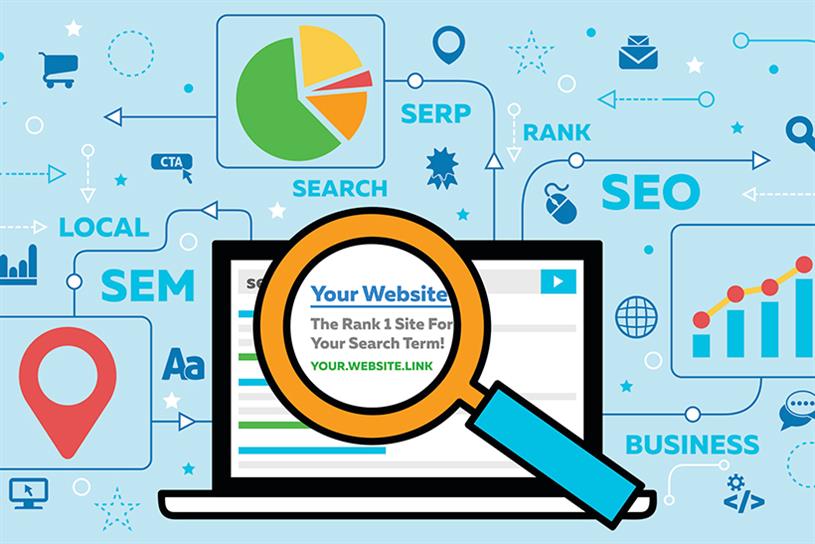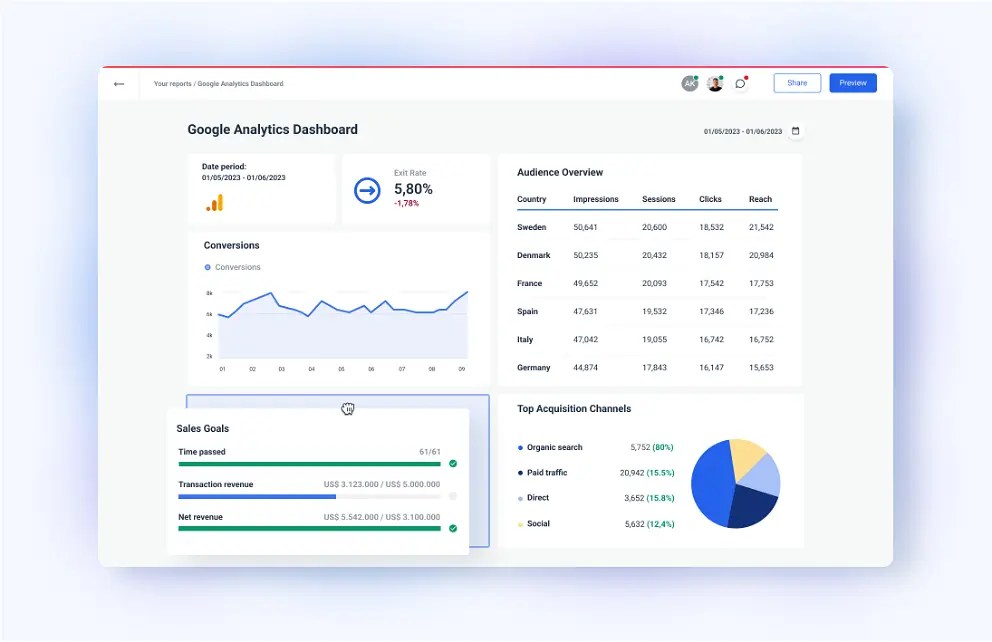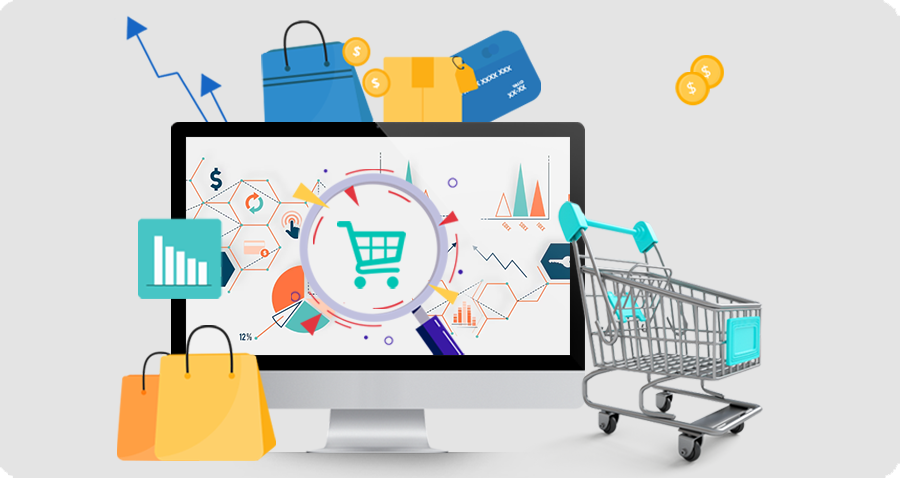Understanding Organic Search: Benefits and Drawbacks
Organic Search VS Paid Search: Which is Best for Your Business?
Understanding Organic Search: Benefits and Drawbacks
In the realm of digital marketing, the debate between organic search and paid search rages on. Both strategies have their merits, but the optimal choice depends on the specific goals and resources of your business.
Organic Search: The Long-Term Play
Organic search, also known as SEO (Search Engine Optimization), involves optimizing your website and content to rank highly in search engine results pages (SERPs) for relevant keywords. The primary benefit of organic search is its cost-effectiveness. Once your website is optimized, you can continue to reap the benefits of increased visibility without ongoing advertising expenses.
However, organic search can be a time-consuming and competitive process. It requires consistent effort in creating high-quality content, building backlinks, and optimizing technical aspects of your website. Moreover, the results can be unpredictable, as search engine algorithms are constantly evolving.
Paid Search: Instant Gratification
Paid search, such as Google Ads, allows you to place ads at the top of SERPs for specific keywords. This provides immediate visibility and can drive targeted traffic to your website. The main advantage of paid search is its speed and precision. You can quickly launch campaigns and adjust them based on performance data.
However, paid search comes with a cost. You pay for each click on your ads, which can add up quickly. Additionally, the competition for keywords can be fierce, driving up advertising costs. Furthermore, once you stop paying for ads, your visibility will disappear.
Choosing the Right Strategy
The best search strategy for your business depends on several factors:
- Budget: Organic search is more cost-effective in the long run, while paid search requires ongoing investment.
- Timeframe: Organic search takes time to yield results, while paid search provides immediate visibility.
- Competition: If your industry is highly competitive, paid search may be necessary to gain visibility.
- Target Audience: Organic search is more effective for reaching users who are actively searching for information, while paid search can target specific demographics or interests.
Conclusion
Organic search and paid search are both valuable tools for driving traffic to your website. Organic search offers long-term benefits and cost-effectiveness, while paid search provides instant visibility and targeted reach. By carefully considering your business goals and resources, you can determine the optimal search strategy to maximize your online presence and achieve your marketing objectives.
Paid Search: Advantages and Limitations
Organic Search vs. Paid Search: Which is Best for Your Business?
In the realm of digital marketing, the debate between organic search and paid search rages on. Both strategies have their merits, but understanding their advantages and limitations is crucial for businesses seeking optimal online visibility.
Paid Search: Advantages
Paid search, also known as pay-per-click (PPC) advertising, offers several advantages:
- Immediate Results: PPC campaigns can generate traffic to your website almost instantly, making them ideal for businesses seeking quick visibility.
- Targeted Advertising: PPC platforms allow you to target specific demographics, interests, and keywords, ensuring your ads reach the most relevant audience.
- Measurable ROI: PPC campaigns provide detailed analytics, enabling you to track performance, optimize campaigns, and measure return on investment (ROI).
- Brand Awareness: PPC ads can increase brand awareness by displaying your business prominently in search results.
Paid Search: Limitations
Despite its advantages, paid search also has limitations:
- Cost: PPC campaigns can be expensive, especially for competitive keywords.
- Competition: Paid search is a highly competitive landscape, making it challenging to stand out and achieve high rankings.
- Dependence on Ad Spend: Traffic from PPC campaigns ceases once you stop paying for ads.
- Limited Organic Visibility: PPC ads do not contribute to organic search rankings, which can impact long-term visibility.
Organic Search: Advantages
Organic search, on the other hand, offers the following benefits:
- Long-Term Visibility: Organic search results are not dependent on ad spend, providing sustained visibility over time.
- Credibility: Websites that rank highly in organic search results are perceived as more credible and trustworthy.
- Cost-Effective: Organic search optimization (SEO) is generally more cost-effective than PPC campaigns.
- Increased Traffic: High organic rankings can drive significant traffic to your website, boosting brand awareness and lead generation.
Organic Search: Limitations
However, organic search also has its limitations:
- Time-Consuming: SEO takes time and effort to implement and achieve results.
- Competition: Organic search is also competitive, and ranking highly for relevant keywords can be challenging.
- Algorithm Changes: Search engine algorithms are constantly evolving, which can impact organic rankings.
- Limited Control: Businesses have less control over organic search results compared to paid search.
Choosing the Right Strategy
The best strategy for your business depends on your specific goals, budget, and resources. If you need immediate visibility and have a budget for advertising, paid search may be a suitable option. However, if you prefer long-term visibility, cost-effectiveness, and increased credibility, organic search is a more sustainable choice.
Ultimately, a combination of both organic and paid search can provide a comprehensive digital marketing strategy that maximizes visibility, drives traffic, and achieves business objectives.
Organic vs. Paid Search: Cost Considerations
Organic Search vs. Paid Search: Cost Considerations
When determining the best digital marketing strategy for your business, understanding the cost implications of organic search and paid search is crucial. Organic search, which involves optimizing your website and content to rank highly in search engine results pages (SERPs), is generally more cost-effective in the long run. However, paid search, where you pay to display ads on SERPs, can provide immediate visibility and targeted reach.
Organic search requires ongoing investment in content creation, keyword research, and technical optimization. While these efforts can be time-consuming, they can yield significant returns over time. By creating high-quality content that aligns with user search queries, you can attract organic traffic to your website without incurring direct advertising costs.
Paid search, on the other hand, involves bidding on keywords and paying for each click on your ads. This approach offers immediate visibility and allows you to target specific audiences based on demographics, interests, and search terms. However, the cost of paid search can vary significantly depending on the competitiveness of your keywords and the size of your target audience.
To determine the most cost-effective approach for your business, consider the following factors:
- Long-term vs. short-term goals: Organic search is a long-term strategy that requires patience and consistent effort. Paid search, on the other hand, can provide immediate results but may not be sustainable in the long run.
- Target audience: Organic search is more effective for reaching users who are actively searching for information related to your products or services. Paid search allows you to target specific audiences based on their demographics and interests.
- Budget: Organic search is generally more cost-effective than paid search, but it requires ongoing investment in content creation and optimization. Paid search can be more expensive, but it offers immediate visibility and targeted reach.
Ultimately, the best approach for your business depends on your specific goals, target audience, and budget. By carefully considering the cost implications of organic search and paid search, you can make an informed decision that aligns with your marketing objectives.
Long-Term Impact of Organic vs. Paid Search
Organic Search vs. Paid Search: Long-Term Impact on Your Business
In the competitive digital landscape, businesses face the dilemma of choosing between organic search and paid search to drive traffic to their websites. While both strategies have their merits, understanding their long-term impact is crucial for making an informed decision.
Organic Search: Building a Sustainable Foundation
Organic search, also known as SEO (Search Engine Optimization), involves optimizing a website’s content and structure to rank higher in search engine results pages (SERPs) for relevant keywords. This approach requires patience and consistent effort, but it offers several long-term benefits.
Firstly, organic search results are perceived as more credible and trustworthy by users, leading to higher click-through rates and conversions. Secondly, organic traffic is generally more sustainable, as it is not dependent on ongoing advertising expenses. Once a website achieves high rankings, it can continue to generate traffic for an extended period.
Paid Search: Immediate Visibility and Control
Paid search, such as Google Ads, allows businesses to display their ads at the top of SERPs for specific keywords. This strategy provides immediate visibility and control over ad placement and targeting. Paid search campaigns can be quickly adjusted to optimize performance and reach specific audiences.
However, paid search comes with ongoing costs. Businesses must continuously invest in advertising to maintain their visibility. Additionally, paid search results are clearly labeled as ads, which can impact their credibility and click-through rates.
Choosing the Right Strategy for Your Business
The best search strategy for a business depends on its goals, resources, and industry. For businesses seeking long-term, sustainable growth, organic search is a valuable investment. It builds a strong foundation for website traffic and brand credibility.
Paid search, on the other hand, is ideal for businesses that need immediate visibility and control over their ad campaigns. It can be particularly effective for short-term promotions or targeting specific audiences.
Combining Organic and Paid Search for Maximum Impact
In many cases, a combination of organic and paid search can be the most effective approach. Organic search provides a solid foundation, while paid search complements it by boosting visibility and targeting specific keywords. This hybrid strategy allows businesses to maximize their reach and achieve both short-term and long-term success.
Conclusion
Understanding the long-term impact of organic and paid search is essential for businesses to make informed decisions about their digital marketing strategies. Organic search offers sustainability and credibility, while paid search provides immediate visibility and control. By carefully considering their goals and resources, businesses can choose the right strategy or combination of strategies to drive traffic, build their brand, and achieve long-term success.
Choosing the Right Strategy: Organic, Paid, or Hybrid
Organic Search vs. Paid Search: Which is Best for Your Business?
In the competitive digital landscape, businesses face the dilemma of choosing between organic search and paid search to drive traffic to their websites. While both strategies have their merits, understanding their distinct advantages and limitations is crucial for making an informed decision.
Organic Search: Building Long-Term Value
Organic search, also known as SEO (Search Engine Optimization), involves optimizing a website’s content and structure to rank higher in search engine results pages (SERPs) for relevant keywords. This approach focuses on building long-term visibility and credibility by providing valuable and relevant information to users.
Advantages of organic search include:
- Cost-effective: No direct advertising costs are involved.
- Targeted traffic: Users actively searching for specific keywords are more likely to be interested in your products or services.
- Brand building: High rankings in SERPs enhance brand awareness and establish your business as an authority in your industry.
However, organic search can be time-consuming and requires ongoing effort to maintain rankings. It can also be challenging to rank for highly competitive keywords.
Paid Search: Driving Immediate Results
Paid search, also known as SEM (Search Engine Marketing), involves placing ads on SERPs for specific keywords. These ads appear at the top or bottom of search results and are typically charged on a pay-per-click (PPC) basis.
Advantages of paid search include:
- Immediate results: Ads can be displayed instantly, driving traffic to your website within a short timeframe.
- Targeted advertising: You can target specific demographics, interests, and keywords to reach your desired audience.
- Measurable ROI: PPC campaigns provide detailed analytics, allowing you to track performance and optimize your campaigns for maximum return on investment.
However, paid search can be expensive, especially for competitive keywords. It also requires ongoing management to ensure optimal performance.
Choosing the Right Strategy
The best search strategy for your business depends on your specific goals, budget, and industry.
- Organic search: Ideal for businesses with a long-term perspective, a focus on building brand authority, and a limited budget.
- Paid search: Suitable for businesses seeking immediate results, targeting specific audiences, and willing to invest in advertising.
- Hybrid approach: Combining organic and paid search can provide a balanced strategy, leveraging the strengths of both approaches.
Consider the following factors when making your decision:
- Industry competitiveness: The level of competition for keywords in your industry will influence the cost and effectiveness of paid search.
- Target audience: Understand the search behavior and demographics of your target audience to determine the most effective search strategy.
- Budget: Paid search can be expensive, so it’s important to set a realistic budget and allocate resources accordingly.
By carefully evaluating your business needs and the advantages and limitations of organic and paid search, you can make an informed decision that will drive traffic, generate leads, and ultimately grow your business.




